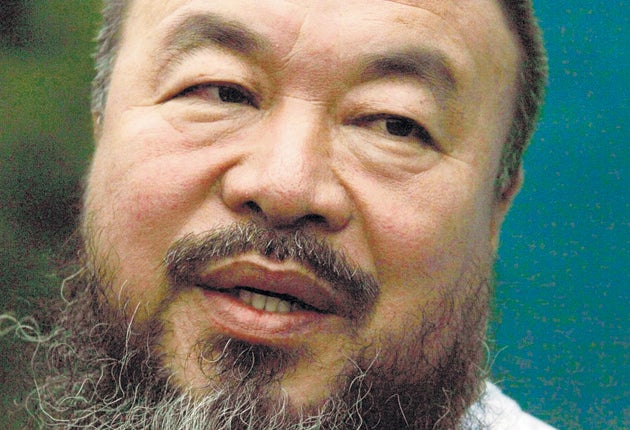Dissident artist Ai Weiwei tests his bonds with criticism of regime

China's best-known dissident, the artist Ai Weiwei, has delivered a calculated and outspoken attack about repression in Beijing, in an apparent rebuke to the regime that had sought to secure his silence by detaining him for nearly three months.
Mr Ai criticised the police, judiciary and the unfairness of Chinese society despite controls imposed on his release (not to use social media or give interviews to foreigners) on bail in June after 81 days in custody over alleged tax evasion, charges which many of his supporters believe are trumped up.
In a commentary for Newsweek magazine's website headlined "The City: Beijing", Mr Ai – best known for designing the "Bird's Nest" Olympic Stadium in Beijing – called the capital a "city of violence" where people were denied basic human rights. He also damned the legacy of the 2008 Beijing Olympics, which has been trumpeted as a victory of Communist Party organisation and a source of national pride.
"None of my art represents Beijing," he wrote. "The Bird's Nest – I never think about it. After the Olympics, the common folks don't talk about it because the Olympics did not bring joy to the people."
The commentary was a wide-ranging denunciation of the way the country was run. He took aim at the giant projects that have transformed the capital's skyline from a low-rise imperial city with a network of narrow lanes and courtyard houses into a vast city of skyscrapers and six-lane highways. He also defended the millions of migrant workers in the capital, calling them "Beijing's slaves".
In the commentary, Mr Ai also alluded to his time in detention, saying "the worst thing about Beijing is that you can never trust the judicial system".
Subscribe to Independent Premium to bookmark this article
Want to bookmark your favourite articles and stories to read or reference later? Start your Independent Premium subscription today.

Join our commenting forum
Join thought-provoking conversations, follow other Independent readers and see their replies